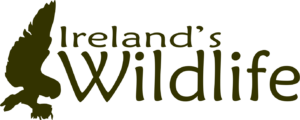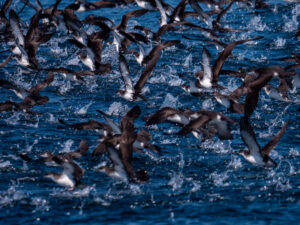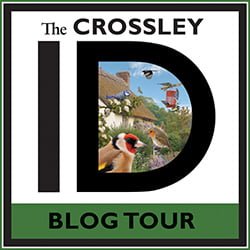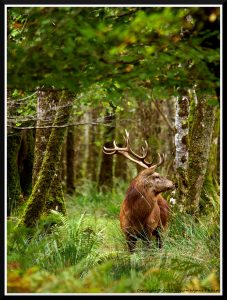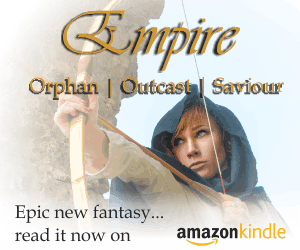Wildlife always has the capacity to surprise and delight us. No matter how long you’ve been watching and studying wildlife, how familiar you are with your local patch, you never can tell what you might encounter on an outing. The potential for the unexpected is always there… whether it’s a completely new species, or a familiar bird or animal exhibiting some unusual behaviour, that prospect of the unknown is one thing that makes wildlife-watching such a fascinating and exciting pastime.
Our recent spring Discover Wildlife Weekend was a prime example of exactly that phenomenon.
We’d had a fantastic weekend watching all kinds of wildlife spanning multiple habitats along the West Cork stretch of Ireland’s Wild Atlantic Way. We had some great views of summer plumage great northern divers from a coastal vantage point, watched late-staying and resident waders and wildfowl on the estuaries, inlets and tidal pools, listened to our resident breeding birds and summer visitors in full song.
As always, one of the highlights of the weekend was venturing out on the North Atlantic with Cork Whale Watch. There we enjoyed some some memorable encounters with literally hundreds of common dolphins, dozens of minke whales, and masses of seabirds. Huge rafts of Manx shearwaters took to the wing as we passed by, while auks (guillemots, razorbills, and puffins) dived beneath the surface. Storm petrels danced over the waves as various gulls, gannets and the occasional great skua sailed by.
A visit to a naturalised beech woodland served as a lovely contrast to the non-stop action of being out on the water. The dappled sunlight beneath the canopy, the gentle sigh of the breeze through the treetops, providing a welcome calm as we enjoyed a chorus of woodland birdsong and outstanding views of several woodland residents.
But the highlight of the weekend was still to come.
The cetaceans weren’t playing ball on Sunday morning for our shore-based whale watch from a coastal vantage point overlooking Rosscarbery bay. Despite ideal conditions, the bay was quiet. When that happens, it often means there’s a large aggregation of forage fish in one location (either offshore, or further east or west along the coast), and whales, dolphins, gannets and everything else that eats fish make a beeline for them.
A lovely singing whitethroat, some fly-by chough, and the aerial mastery of fulmars as they wheeled to and from their nesting sites along the cliff kept us entertained. We checked a local stream for dippers, and some had a fleeting view of one disappearing into bankside vegetation. Being out looking for wildlife is an enjoyable and worthwhile activity in and of itself, but I couldn’t help feeling the morning was under-delivering.
Our last stop before finishing up for the weekend was the Clogheen/White’s Marsh area, south of Clonakilty. There had been great and cattle egrets in the area recently, and while they hadn’t been reported for a few days, it was well worth checking.
We made our way along the causeway from the north side of Clogheen, heading south towards Clonakilty, periodically stopping to scan the marsh for anything interesting. The first thing we picked up was a ruff on the edge of the northern pool. Even when they’re not in full breeding livery, ruff are very striking waders. It was a first for several in the group, making for a handsome addition to the weekend list.
We moved on. As I scanned a channel running east to west through the marsh, something on the bank caught my eye. I stopped the scope dead. Surely I was seeing things. I checked again, zoomed in, refocussed.
There, preening itself in my scope view, was a Purple Heron. I could barely contain my excitement. What a bird!
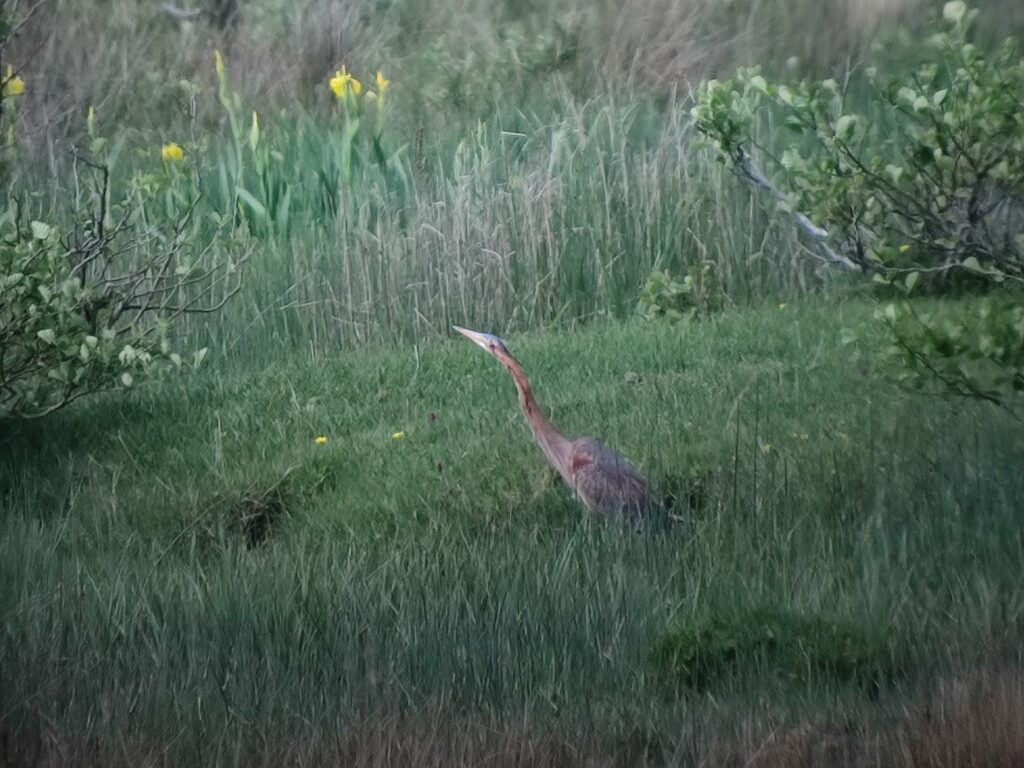
I put the news out as the group enjoyed fantastic views of this stunning rare bird. As other birders arrived we moved on, and while technically we finished the weekend with some very smart male Pintail, a male Shoveler and a Cattle Egret towards the east end of White’s Marsh, I think it’s fair to say the Purple Heron stole the show.
You never really know what you might see on these weekends. Every one is different, and I can’t wait to see what the rest of 2022 has in store.
If you’d like to join me on the West Cork coast for one of these weekends, I currently have just 2 spaces available on our summer weekend running from 15-17 July, and there’s still plenty of space on our October weekend (07-09), which coincides nicely with peak autumn bird migration and fin whale season.
For more details on the weekends, and to book your place, check out our wildlife weekend booking page here.
